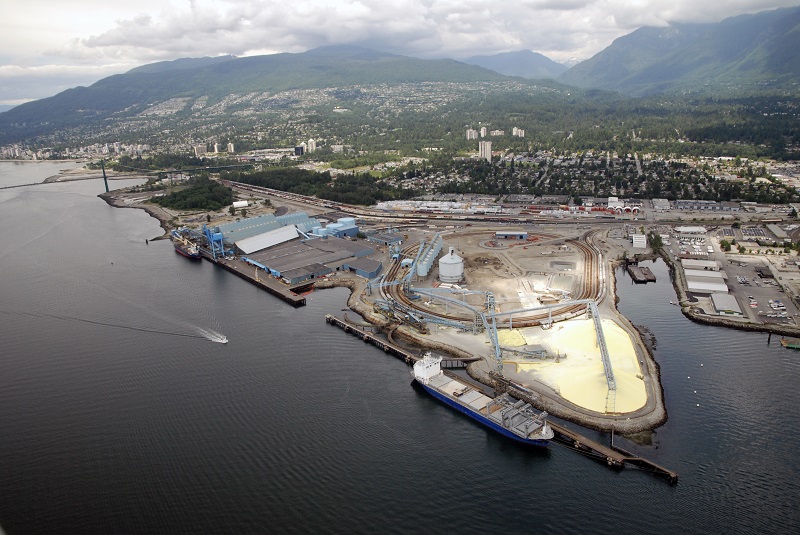HOUSTON (P&GJ) — Calgary-based Pembina Pipeline has agreed to acquire Kinder Morgan Canada and the U.S. portion of the Cochin Pipeline system in a C$4.35 billion (US$3.3 billion) deal that expands Pembina's crude oil storage capacity in a period of high regional demand.
The sale includes a significant crude oil storage and terminalling business in Western Canada's key energy complex, including the Edmonton storage and terminal business and Vancouver Wharves, a bulk storage and export/import business. The complex connects Pembina's conventional and oil sands pipelines to all major export pipelines.
The transaction includes 100% of the 1,810-mile Cochin Pipeline system, including the Canadian portion owned by Kinder Morgan Canada and the U.S. portion, which accounts for nearly half of the deal at C$2.05 billion (US$1.54 billion).
"(The acquisition) represents an ideal opportunity to continue building on our low-risk, long-term, fee-for-service business model while extending our reach into the U.S. through a highly desirable cross-border pipeline, said Mick Dilger, Pembina's president and CEO. "Further, it will enhance our diversification as well as Pembina's customer service offering as a leading provider of integrated services to hydrocarbon producers in Western Canada."
The 95,000-bpd Cochin system, which currently imports condensate into the Alberta region to dilute its heavy oil production, crosses seven three U.S. states and three Canadian provinces. It connects Pembina's operations in the Channahon, Bakken and Edmontonareas to markets in Mont Belvieu, Conway and Edmonton. Pembina said there is also potential to connect the eastern leg of the Cochin system to its assets and markets in Sarnia, Ontario.
The Edmonton crude oil complex includes 10 million barrels of storage capacity, inbound and outbound connectivity, which Pembina views as "highly attractive in the current environment." Pembina said it has identified a number of expansion possibilities at Vancouver Wharves, a 125 acre bulk marine terminal facility that currently transfers more than 4 million tons of bulk cargo annually.
Crude oil storage has been in high demand in Canada, as production from Alberta's oilfields has exceeded pipeline takeaway capacity and producers have limited transport options. Kinder Morgan Canada assets included in the sale are:
| Asset | Capacity | |
|---|---|---|
| Edmonton South Terminal | 5,100 mbbl (storage) | 15 tanks under long-term lease agreement from Trans Mountain. Storage capacity is contracted to 3rd parties in unregulated service (merchant tanks) |
| North Forty | 2,150 mbbl (storage) | Merchant crude oil storage and blending services |
| Base Line Terminal | 4,800 mbbl (storage) | Operated 50/50 joint venture with Keyera (six tanks placed into service through June, 2018; remaining six tanks will be placed into service by year-end 2018) |
| Edmonton Rail Terminal | 210 mbpd (capacity) | Operated 50/50 joint venture with Imperial Oil (largest origination crude-by-rail terminal in North America) |
| Alberta Crude Terminal | 40 mbpd (capacity) | Non-operated 50/50 joint venture with Keyera (fully contracted) |
| Vancouver Wharves | 4.0 mmtpa bulk + 1,500 mbbl per year | Bulk commodity marine terminal provides handling, storage, loading and unloading services |
This is an attractive transaction for (Kinder Morgan) KMI and (Kinder Morgan Canada) KML stockholders,” said Steve Kean, CEO of Houston-based Kinder Morgan. “It enables KMI to reduce leverage and gives us the flexibility to create additional value for shareholders through share buybacks, project investments, or both.”
The deal is expected to close late in the fourth quarter of 2019 or in the first quarter of 2020, subject to customary closing conditions, including KML shareholder and regulatory approvals.
Kinder Morgan's sale of Kinder Morgan Canada follows its $4.5 billion sale of the Trans Mountain Pipeline system and Trans Mountain Expansion Project to the government of Canada in August 2018.











